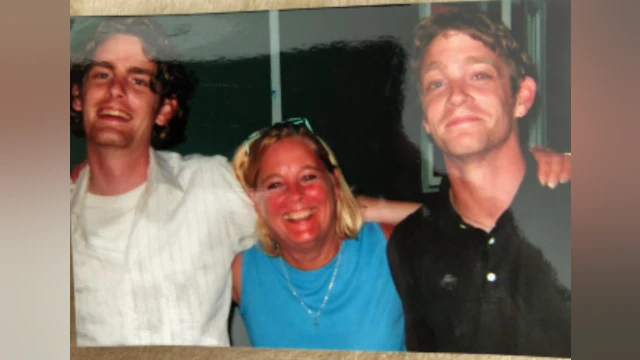Opioid use disorder and suicide prevention are two topics that have immense personal meaning for me. As I wrote in a previous blog for the American Foundation for Suicide Prevention (AFSP), my son Tom passed away on Friday, September 30th, 2016, after losing his long battle with depression; he died of a heroin overdose.
In March 2020, AFSP’s Senior Vice President of Research, Dr. Jill Harkavy-Friedman, extended an invitation to me regarding a significant venture embarked upon by Kaiser-Permanente with funding from the National Institute of Mental Health (NIMH): an exploration of the intersection of opioid use disorder and suicide prevention within health care systems. Our country is far behind in providing care for those among us fighting the dual beasts of depression and addiction. This transformative initiative required extensive collaboration with stakeholders; it was my honor to be involved.
The Stakeholder Advisory Board met from December 2020 through February 2023. The group played a crucial role in this initiative, standing as equal partners alongside research scientists throughout the project. From crafting interview questions and selecting interviewees, to analyzing the collected data and shaping the final interpretation, our collaboration was a testament to the power of inclusive teamwork. We also collaborated on drafting recommendations and guidelines, ensuring a holistic and informed approach to the study.
The journey was not without its challenges. Initially, I grappled with doubts about the value of my contributions, questioning whether the perspective of a grieving mother could truly make a meaningful impact. My son, Tom, had experienced numerous overdoses and suicide attempts: an emotional reality that often left me questioning my place in this research endeavor. As a family, we had lived our son’s depression, his suicide attempts, his heroin addiction, his suffering, and our suffering — we fought the “beasts” together, over the course of 18 years, until Tom’s death at the age of 33.
This matters somehow, doesn’t it? Where is all of this captured in research that might help to save another? Tom wasn’t just a number. He was real. He mattered. I realized our story contained a powerful, personal narrative that, coupled with other similar stories, might provide an additional and crucial lens — one that we could all look through, together, to continue our attempt to understand suicidal thoughts and drug abuse.
As the project unfolded over nearly three years, my uncertainties transformed into a profound sense of gratitude. I realized my personal experience had value, and could inform how we help others.
Our collective efforts have borne fruit, and the comprehensive report detailing our findings is now available.
Today I sit here reflecting on this journey, and appreciating the privilege of representing AFSP in this groundbreaking study. This experience has not only enriched my understanding, but has also reinforced the importance of diverse perspectives in shaping health care strategies. It's a testament to the impact that personal stories, like Tom's, can have in driving meaningful change.
As I wrote many years ago, our son Tom’s biggest fight was within himself. He tried to numb the pain of depression with alcohol and drugs. He was not prepared to fight his disease, the depression that clouded his living. We were not prepared. Tom did not die on his own terms.
But as I also reflected, speaking at Tom’s funeral mass: “It's all good, my son. People need your story. Even when our hearts are breaking. They need your light, and they need your darkness, too. They need to hear about us — a mom, a dad, a sister and a brother who faced the worst nightmare and lived anyway. We are broken. We are exceptional. We are working to heal.”
As we navigate the complex landscape of mental health and substance use, our shared commitment to suicide prevention stands as a beacon of hope for a brighter, more compassionate future.
Photo caption: Mary Jean Coleman with her two sons Tom (left) and his twin brother Ryan (right).
